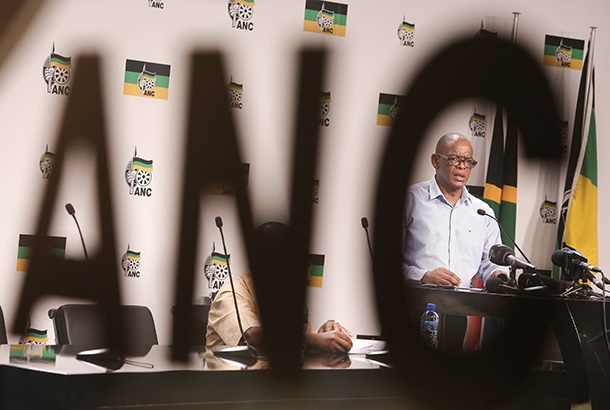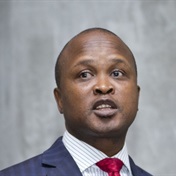
Our obsession with the ANC is keeping us from engaging about what is really important to our society. We fail deliberately in rescuing the public dialogue, writes Ralph Mathekga.
In writing this week, I had to get back to the question about the quality of the public discourse in South Africa, which I think is worrying.
Chief Justice Mogoeng Mogoeng said in a recent radio interview that we are a "factionalised society". How did we get here? Well, it was through a series of misdeeds, some of which were deliberate while others were genuine.
Among the genuine mistakes that were committed in the last 25 years of democracy was the setting in of the belief that the solution for the country solely resides with the ANC. This thought was based on the incredible history of the ANC as a leader of the liberation movement in South Africa; a task that has earned South Africa readmission into humanity after the embarrassing years of the apartheid project.
Far back in the early '90s, who in their right mind would've raised the idea that Mandela's political party could develop such an insatiable appetite for corruption? It would have been blasphemous to question the moral basis of the ANC's decisions in government in the first few years of democratic experimentation in South Africa.
Opposition parties in South Africa have modelled themselves also as competitors for better implementers of ANC policies in government. For South Africa's opposition parties, the greatest achievement is being the best at opposing the ANC. While this has been achieved by the opposition parties thus far, they have not been able to show creativity in their offerings. They are either repeating what the ANC is saying or dismissing what the ANC is saying: nothing more, nothing less.
I have earlier referred to this as mediocre opposition. However, I fully understand its roots. It is also based on the domination of the ANC in society; which is political and social. It is difficult for the opposition to break away from this, and perhaps even the society in general. Hence the national obsession with the renewal of the ANC. This is because the only way out of our problems is through the ANC.
The mistrust within the ANC, which has roots in the tradition of the party and how it relates to power, has infiltrated state institutions, the society and the general public dialogue in the country.
South Africa has two types of people: those who love the ANC, and those who hate it with passion. There are not many people who take the middle ground. I have met people who first pronounce how uninterested they are in politics. They would profess that for them it's not about which party governs; it's about doing the right thing. After their politics speech they would then express their hatred of the ANC and how messed up affirmative action and BEE are.
There are very few people in this country who can genuinely say that they have no interest in the ANC, but simply in a better functioning society. It is difficult for South Africans to construct a society without imagining a prominent role for the ANC. Some people have referred to this as Stockholm Syndrome; when a hostage develops extreme sympathy and understanding for their captor.
In a society such as this one obsessed with a single political party, the entire public discourse is lodged in the conduct of such a party. ANC members probably wake up surprised every morning to find out how much they matter to society.
As a nation we are neatly demarcated in line with what the ANC does. If the ANC experiences sharp internal divisions, the society experiences the same phenomenon.
The public discourse is not a conversation aimed at reaching out to each other and advancing a new path. The public discourse rather becomes a referendum on the views of the ANC. Imagine the place South Africa would be if it could ignore the ANC and attempt a different conversation.
I know this is impractical. However, political parties are obsessed with relevance. Political leaders are attention seeking individuals who would speak on just about anything under the sun, often getting themselves into trouble. That's staying relevant! The society should therefore ground its conversation in public interest, and parties will gravitate to such a discourse, so they can stay relevant.
If a society is unable to set the conversations and the terms of engagement, political parties will alternatively set the conversation among themselves and the nation would have to follow. It happens that political parties go into elections just competing among themselves on issues that are of no importance to voters. If voters do not ask why, political parties will not worry about such a situation. For them, it's about winning votes, and occasionally implementing a few policies here and there.
Where we fail deliberately in rescuing the public dialogue, is that amidst the crisis we are in, we still see solutions as solely lying in political parties. This time, the solution is Cyril Ramaphosa. The view is that he is a "great man" who is constrained. He "inherited" a bad ANC. He is "held back" by factions in the ANC.
The political elites enjoy greater prominence in our discourse and also as our solutions. It cannot be the case that our debates are dominated by political elites as the main actors. It is very easy for the society to be caught in a tussle between the elites and reduce the national conversation to the interest of those elites. As a nation, we need to rise above the battle among the elites.
- Ralph Mathekga is a political analyst and author of When Zuma Goes and Ramaphosa's Turn.
** Want to respond to the columnist? Send your letter or article to voices@news24.com with your name, profile picture, contact details and location. We encourage a diversity of voices and views in our readers' submissions and reserve the right not to publish any and all submissions received.
Disclaimer: News24 encourages freedom of speech and the expression of diverse views. The views of columnists published on News24 are therefore their own and do not necessarily represent the views of News24.




 Publications
Publications
 Partners
Partners























